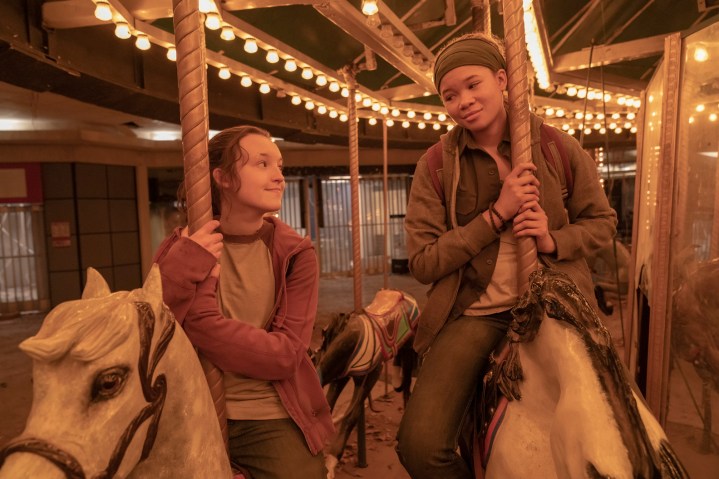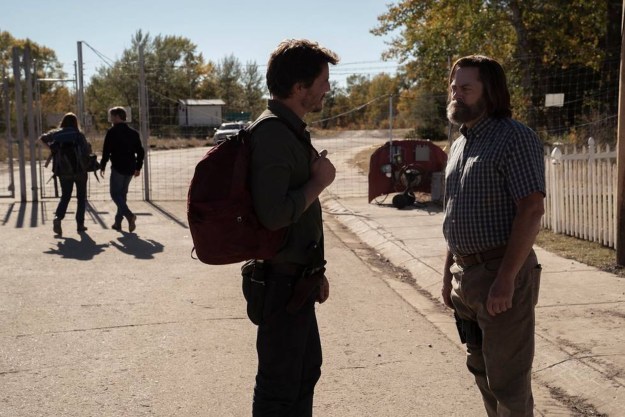HBO’s series The Last of Us has proven to be one of the most popular and well-crafted TV shows in recent memory, which has helped dispel the stigma toward video game adaptations. But naturally, many people armed with their keyboards have deconstructed the series and made heavy comparisons to the acclaimed video game it is based on.
While some may prefer the game over the show, the TV series has arguably improved it in multiple aspects, including in terms of plot, characters, visuals, and overall mainstream appeal. The series has finished its first season, and with another on the way, there is already proof that The Last of Us is better off as a TV show.
The show focuses more on the narrative

Video games, by nature, are all about gameplay. People use games for escapism, focusing more on how immersive and enjoyable the experience of playing them is than on the quality of the narrative. Even some of the most acclaimed video games of all time have stories that can hardly be considered adequate, but many gamers hardly seem to care.
However, The Last of Us has a layered, engaging, and emotional story that deserves to be seen, and the gameplay can sometimes get in the way of how the audience experiences it. Fortunately, the TV show is simply about watching the characters. It thus places a greater emphasis on the story, the characters, and the setting, allowing more people to fully appreciate the artistry behind the game.
Live-action is easier to digest

For some people, a video game’s story is more engrossing when its human characters aren’t CGI creations. While the games did a great job bringing their cast to life through advanced motion-capture technology, the fact that they still don’t look or move like real-life humans can be distracting to certain audiences, specifically older ones who didn’t grow up watching CGI.
But since the characters in The Last of Us TV show are completely live-action, there’s no risk of them stepping into the uncanny valley and disheartening audiences. As a result, the series can appeal to many more people, and based on its tens of millions of viewers, the live-action approach has worked quite well.
TV reaches a broader audience

While a vast amount of kids and adults play video games these days, there is still a large number of people, specifically those in older age groups, who don’t pick up a controller. According to a study on TrueList, Americans who don’t play video games make up roughly 24% of those younger than 18 and 33% of adults older than 18. These media habits have limited the exposure The Last of Us has received as a gaming exclusive, preventing it from receiving more of the recognition it deserves. However, since many more people watch TV and films, The Last of Us now has plenty more fans after becoming a series on HBO.
More creative freedom

Since the games had players controlling Joel and Ellie most of the time, the gameplay limited the story to their perspectives. But because TV shows focus more on the story itself, writers have a greater chance to explore the world and characters of their narrative than they do when making a video game. This benefits The Last of Us a great deal, as it gives the show’s creators more room to expand upon the source material while adapting it for television.
For instance, while the game starts with the first night of the pandemic, the HBO pilot builds up to it with scenes exploring Joel and Sarah’s regular lives and the lives of the people around them, which makes the apocalypse even darker when it finally comes. The episode also opens with a gripping talk show scene in 1968 that chillingly heralds the planet’s impending doom from the newly discovered fungus.
TV allows for more diversity

The Last of Us games are no stranger to promoting diversity with its cast, with main protagonist Ellie famously being a lesbian. The show has also taken another step further by casting Chilean-American actor Pedro Pascal as Joel (who is Caucasian in the games). Similar to how the writers were given more freedom to create stories for The Last of Us, they were given the chance to shine more light onto underrepresented groups.
One example is the show’s outstanding third episode, which gives side characters Bill and Frank an hourlong romance together that’s well-developed and much more tender than what was seen in the games. Likewise, the writers of the series changed Sam’s character by making him an eight-year-old deaf person. As he and his older brother, Henry, are seen surviving and communicating through sign language, the show normalizes the experiences of deaf people and combats the stigma surrounding them. This all helps make the TV show more enjoyable to many more people than the games ever were.
All nine episodes of The Last of Us are available to stream on HBO Max.
Editors' Recommendations
- These 5 TV shows could be the next The Last of Us
- Apple TV+’s Tetris shows movies about video games are the next big thing
- The 7 most shocking moments from HBO’s The Last of Us
- HBO’s The Last of Us show spotlights the series’ best game: Left Behind
- Hogwarts Legacy works better as a TV show than as a video game




